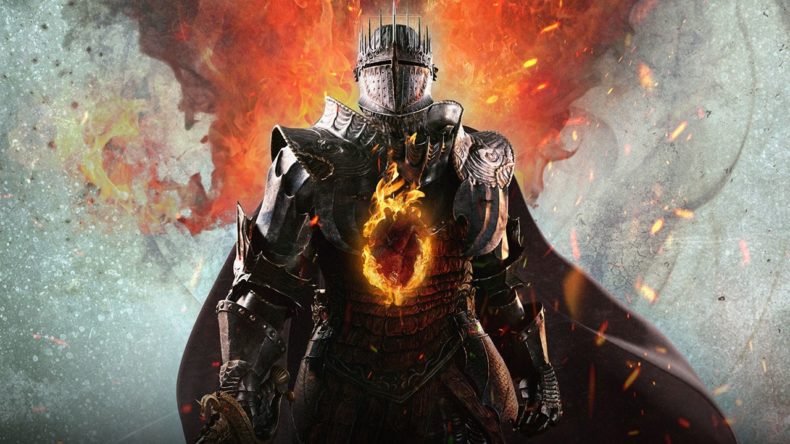February 22, 2024
Dragon’s Dogma 2 is not a game that will meet you halfway. And I feel that needs to be made clear as early as possible, particularly for newcomers. This is not an open world like Ubisoft makes; there are no icons and objective lists to tick off. It’s arguably less forgiving than The Lands Between, often tougher to navigate than Skyrim’s harshest climbs. It’s a world where being unprepared is lethal, and decisions you make are permanent. The “play it your way” ethos we see more and more in open world RPGs just doesn’t really exist in Dragon’s Dogma 2. You play it the way it’s meant to be played, or you’re going to have a very hard time.
A case in point is the health mechanic it employs, which reduces your maximum HP the more damage you take. There are two ways to reverse this and avoid running around with 20% health: rest in a bed, or rest at a camp. Camping gear is heavy, and Dragon’s Dogma 2 is incredibly stingy with carry weight – at least initially. But you’ll need a camping kit to heal up, and if you don’t clear the area first you will likely be ambushed in your sleep. In 99% of open world games, you’d just fast travel to the nearest town and rest.
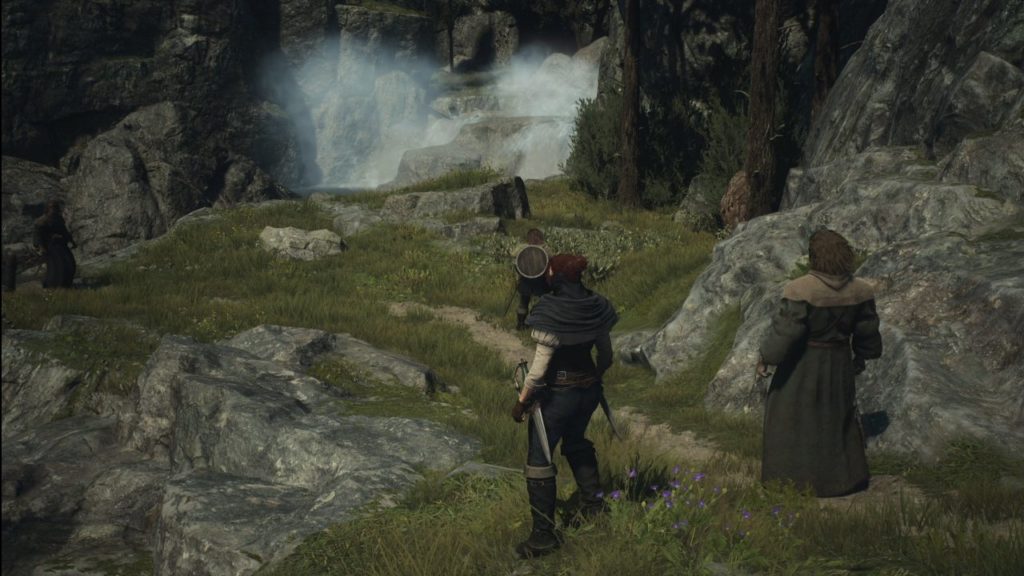
In Dragon’s Dogma 2, fast travel is only possible using a finite resource called a Ferrystone, and inns charge a lot of gold for a night. It constantly forces you to weigh the pros and cons of everything you do. Use up a valuable Ferrystone and know that you’ll need to walk all the way back from the next quest? Attempt to find a safe spot and literally wait for the sun to come up? Or grit your teeth and hope you can limp back to the nearest town on 20% health through wilds infested with goblins, harpies, wolves, bandits, and giant ogres?
Of course, you never have to go anywhere alone in Dragon’s Dogma 2. As in the first game, you’re able to employ Pawns, living Automatons from another dimension who exist only to serve the Arisen, which is you. The Arisen can command Pawns, and you can hire up to two others from within the Rift to accompany you and your main Pawn. The main Pawn is so integral to the game that you create them alongside your player character at the beginning, with the exact same parameters, to be your ever-present companion and bodyguard. The ones you pull from the Rift belong to other players – hence why I travelled with God of War‘s Kratos for several hours and only gave up because his regional British accent ruined the illusion.
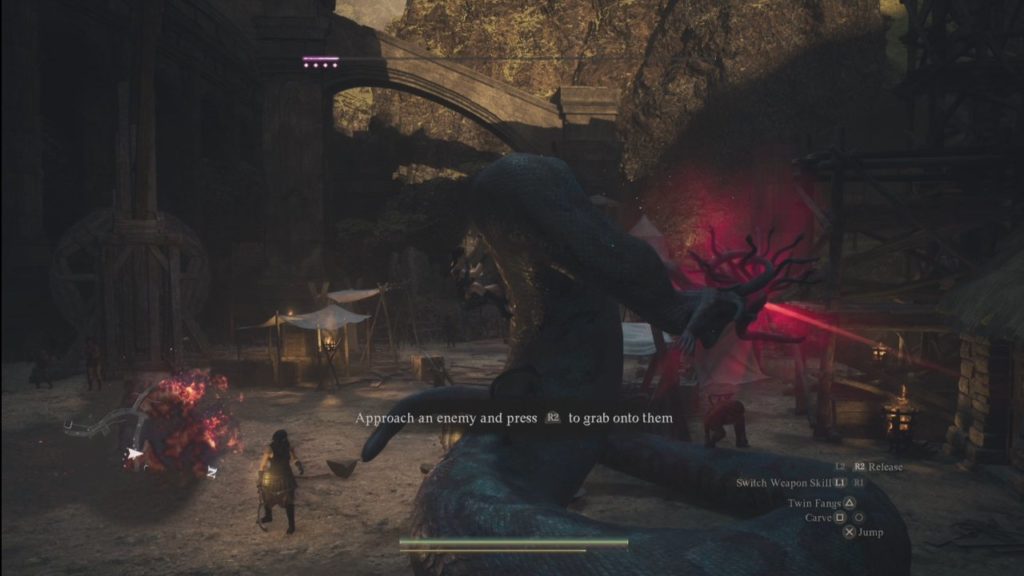
Obviously the smart money’s on assembling a group who compliment one another. I selected the Thief class, one of the new classes alongside Archer that was extrapolated from the first game’s Strider class. My main Pawn was a fighter who I later changed to a Mage, and I generally took two other Pawns to fill up ranged, caster or tank spots. You can change Vocations for you or your Pawn by finding the Vocation Guilds or visiting an inn, and you’ll unlock more at certain points in the campaign. I’m glad this is a thing, too, as Dragon’s Dogma 2 only allows you one save per playthrough. You can’t save scum decisions or have multiple characters at once – hell you can’t even delete the save without going into your console or PC settings. It’s initially bewildering, archaic, and frustrating until you remember point number one of this review: you play Dragon’s Dogma on its terms, or not at all.
There are quality of life elements elsewhere though. For example, upgrading your gear can be done by taking items directly from your Storage box, which is accessible from most inns or properties you own. No need to lug everything around with you. That said, other decisions are simply baffling. For example, you can rest or doze to pass the time of day, but there’s no in-game clock to know whether it’s morning or evening, pre-dawn or dusk. A lot of requests require you to be somewhere at a certain time, so this is just annoying more than anything.
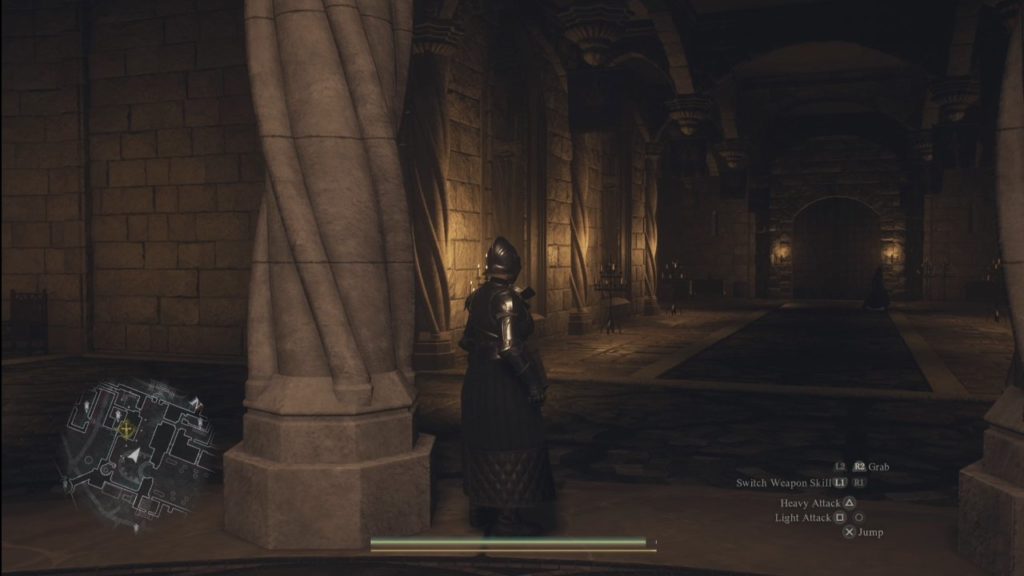
Combat is spectacular to watch, and feels great, with crunchy feedback and a huge array of special moves to unlock per Vocation. The lack of a lock-on for melee classes is hard to get used to, and counterintuitive when you’re routinely fighting upwards of five enemies at once, some of which can fly or will run around you at speed. Enemy density is incredibly high at times, and large monsters can spawn anywhere – including inside settlements and cities. You’re rarely completely safe in Dragon’s Dogma 2.
Veterans will be immediately at home with most of the systems here, though, even with conveniences like the Eternal Ferrystone introduced in the Dark Arisen expansion absent. Combining ingredients to make potions and brews is very similar – in fact the broad strokes here will make the game very familiar to returning players. Newcomers may find some of the more complex elements downright unfriendly, but Dragon’s Dogma 2 simply requires that you adapt your approach. And that’s not necessarily a bad thing. Its structure is unique among open world RPGs, for better or worse.
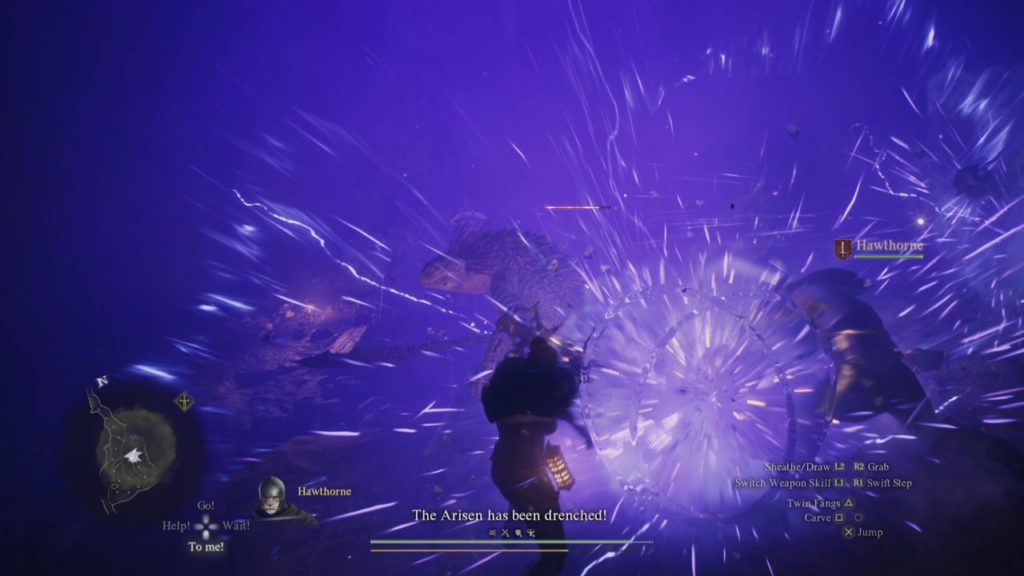
Even story quests aren’t all highlighted with map markers, and those that are will often give a general active area rather than pinpoint a precise location. NPCs can, and will, roam around, and if they’re killed you’ll need to find a crypt and resurrect them using a precious Wakestone. I do have a few issues with the way some quests resolve, though, as some of the instructions are needlessly vague, and I struggled to resolve one particular quest for hours before it kind of just resolved itself when I did something the game hadn’t even prompted me to do. I can’t explain further without spoilers, but this is a game that requires you to think for yourself and exhaust all options. “Fantasy Assassin’s Creed” this is not.
The story itself is fairly enjoyable. It’s an intriguing plot about a false Arisen who has usurped the throne of Vermund, and your quest to expose the corruption and prevent an incoming war. You’re uniquely equipped for this because, of course, you are the Arisen. The writing is… Well, it’s Dragon’s Dogma, so while the plotting is mostly decent the dialogue is a little peculiar. Vets will know what to expect, while first-timers might be confused by the Pigeon-Shakespeare dialect – especially when your Pawns repeat every line multiple times. Once you’ve determined to your satisfaction that the goddamn ladder can be goddamned climbed, and there might be aught of value at the goddamned top, you don’t need to be told again. But you will be. Every time you walk past it.
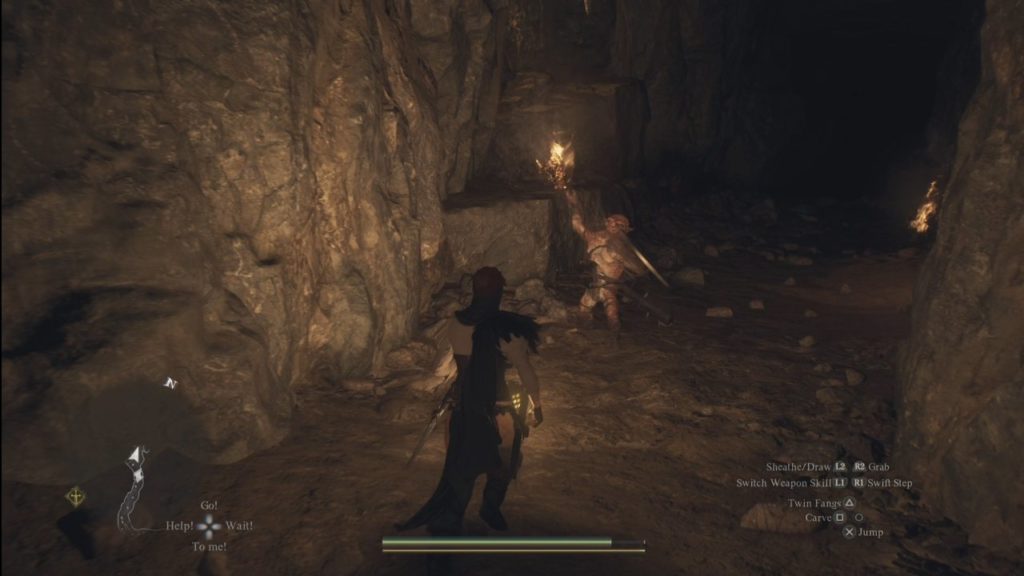
Despite its annoyances, though, Dragon’s Dogma 2 presents a world that is almost entirely uncompromising. You can make your own mind up about whether the presence of Pawns based on influencers is an issue or not when you can also find Pawns cosplaying characters like Kratos. It has little bearing on the world, and does nothing to detract from this game’s greatest strength, which is its sense of adventure. As with titles like Breath of the Wild, or even Monster Hunter, Dogma’s world demands preparedness and patience when setting out to explore its deepest corners. Bring food and provisions, but travel light and fast.
Vermund and Battahl are realms filled with things to find. Treasure chests in foreboding caves, tiny hamlets in the shadow of towering cliffs, roaming beasts the size of cottages, wandering Pawns, and citizens in need of rescue ensure that a trip anywhere is never uneventful. There are small touches that make a huge difference, such as high-fiving a Pawn after a fight, or the cooking animation at camp that shows real meat sizzling in a real pan, or the fact that disguises work in certain areas and the game never directly tells you. Crucially, the world feels like it can exist just fine without your presence, which the best open worlds manage effortlessly. It also runs fairly smoothly on PlayStation 5 with very few glitches, though it suffers a few frame drops in the city. It’s not as smooth as most games employing the RE Engine, but it’s the biggest yet in terms of its world.
Some of the scenery is gorgeous, too, with Battahl offering an aesthetic we haven’t really seen in this world. Once or twice I’ve taken five minutes beside a waterfall or on a cliff edge to play with the photo mode, or just drink in the vistas. Animations are smooth enough and the character models work well enough, but the star is the world itself. It looks and feels like a real world, not a game world, and if that means a twenty minute walk through a goblin camp to find a river crossing, then that’s what it means.
This sequel is exactly what veterans will be expecting, and, frankly, wanting – and I couldn’t be happier that it fainally got made, as double-edged as that may be. It can be incredibly stubborn, annoyingly obtuse, and occasionally awkward, but it’s also huge and beautiful, filled with adventure, danger, and wonder, and if you’re willing to immerse yourself in its systems and play it the way it was intended to be played, there’s simply no other action RPG experience like it.
The open world is huge and well-made
Combat is fast and flashy
Incredible sense of adventure
Some baffling design choices
Can be too obtuse for its own good
Dragon's Dogma 2 is exactly what veterans will be expecting, as double-edged as that may be, but there's simply no other action RPG experience like it.


